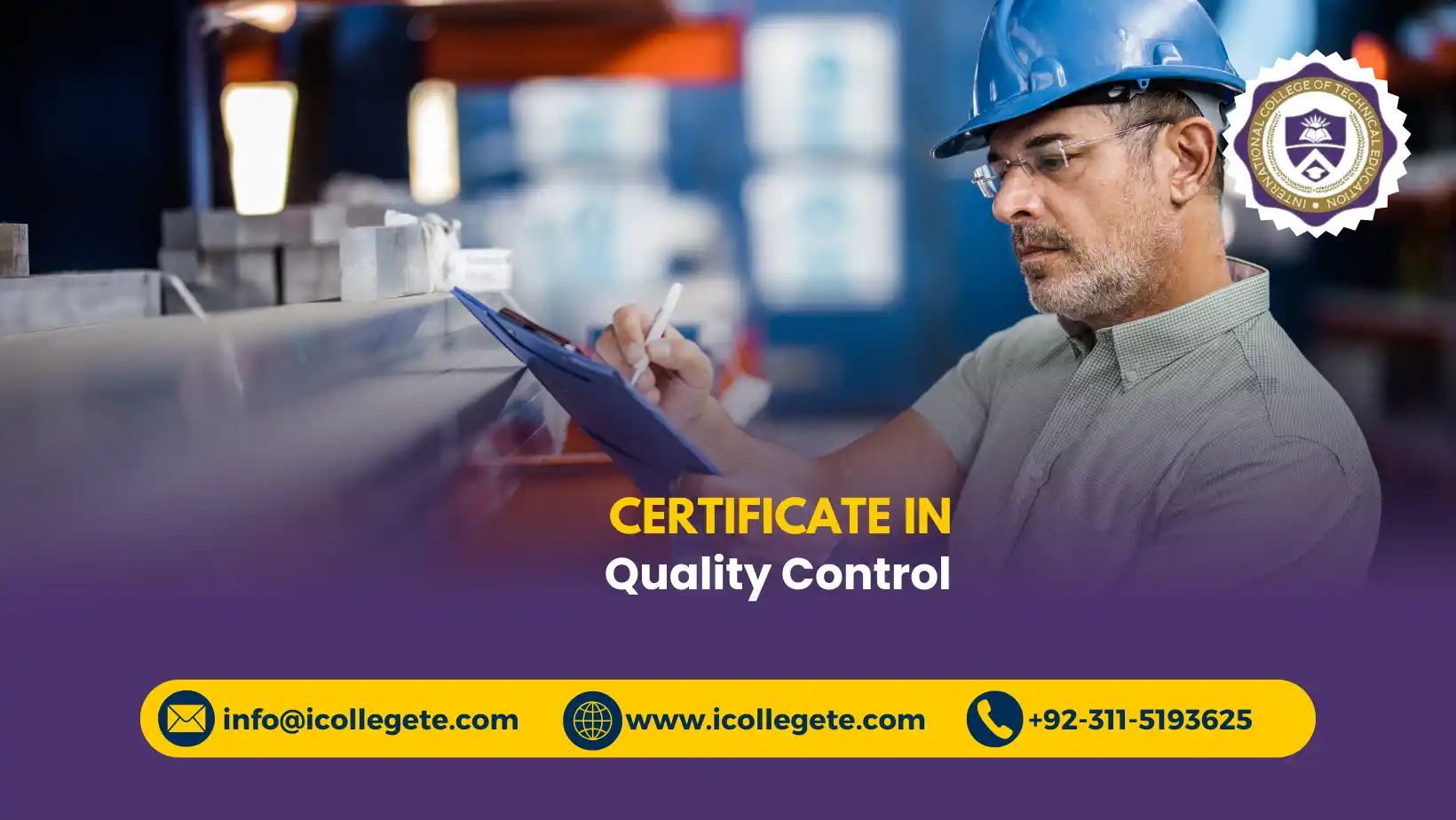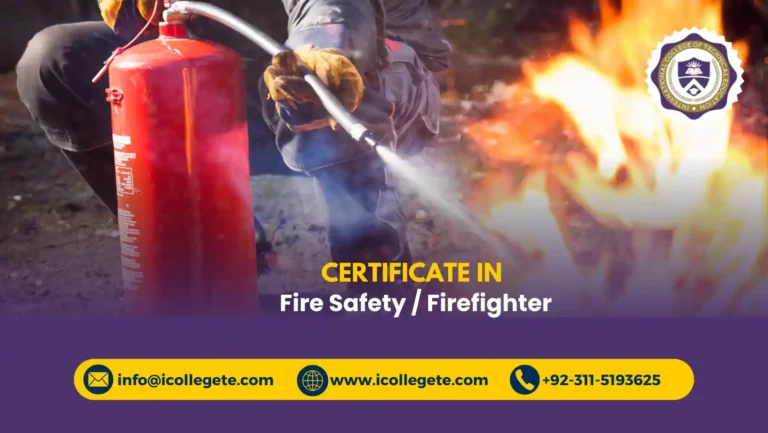In today’s competitive manufacturing and production industries, quality control plays a crucial role in ensuring that products meet required standards and customer expectations. As companies strive for excellence, there is a rising demand for skilled quality control professionals who can oversee processes, conduct inspections, and implement quality management systems. The Quality Control Course in Rawalpindi is designed to provide the knowledge and technical skills needed for a career in this vital field.
Whether you’re planning to enter the industrial sector or want to enhance your existing qualifications, this course offers practical, hands-on training aligned with modern industry requirements.
The Quality Control Course introduces learners to the principles and practices of monitoring, evaluating, and improving product and process quality across various industries. This course, offered by technical institutes in Rawalpindi, equips students with the tools and techniques used to inspect materials, test products, and implement quality assurance procedures.
It is ideal for individuals looking to work in manufacturing, pharmaceuticals, construction, textiles, and other sectors where quality and compliance are key performance indicators.
Course Overview
This course blends theoretical knowledge with practical applications, preparing students to work in real-world production and inspection environments. It covers both quality control and basic quality assurance concepts, enabling learners to understand and apply best practices in their field.
Course Details:
- Duration: 3 to 6 months
- Mode: On-campus (some institutes may offer online options)
- Entry Requirements: Minimum Matric or Intermediate qualification; science background preferred
- Certification: Institute-issued certificate or diploma
Study Units
The Quality Control Course curriculum typically includes the following modules:
- Introduction to Quality Control and Quality Assurance
- Inspection Techniques and Sampling Methods
- Types of Defects and Quality Standards
- ISO and International Quality Management Systems (QMS)
- Use of Measuring Instruments and Tools
- Material Testing and Laboratory Practices
- Documentation and Reporting in Quality Control
- Process Control and Statistical Quality Control (SQC)
- Workplace Safety and Regulatory Compliance
- Soft Skills for Quality Professionals (communication, reporting, teamwork)
Learning Outcomes
After completing the course, students will be able to:
- Understand the role of quality control in industrial operations
- Conduct inspections and use standard measuring tools effectively
- Perform basic material and product testing
- Identify and document product defects or deviations
- Implement quality management systems such as ISO 9001
- Apply safety and compliance standards in the workplace
Course Benefits
Choosing the Quality Control Course in Rawalpindi offers multiple benefits:
- Industry-Relevant Skills: Training aligned with current industrial quality standards
- Job Readiness: Learn practical tools and techniques applicable in real work environments
- Professional Certification: Boosts your credibility and employability
- Flexible Career Options: Opportunities in manufacturing, construction, pharmaceuticals, and more
- Skill Enhancement: Valuable for technicians, supervisors, and those in production roles
Who Is This Course For?
This course is suitable for:
- Students with a science or technical background
- Job seekers aiming to enter the quality control or manufacturing sectors
- Technicians and machine operators wanting to upgrade their skills
- Supervisors and line managers needing formal quality training
- Professionals from other industries looking to switch to quality assurance roles
Future Progression
Graduates of the Quality Control Course can explore several career and education pathways:
Further Education:
- Advanced diplomas in Quality Assurance or Industrial Engineering
- Specialized courses in ISO, Six Sigma, or Lean Manufacturing
- Bachelor’s degrees in Industrial, Mechanical, or Chemical Engineering
Career Opportunities:
- Quality Control Inspector
- Quality Assurance Technician
- Production Supervisor
- Laboratory Technician
- Compliance and Standards Officer
- Process Control Analyst
With experience and additional training, professionals can move into senior roles such as Quality Managers, Auditors, or Quality System Consultants.
If you’re looking to build a career in one of the most essential functions within modern industry, the Quality Control Course in Rawalpindi provides a solid foundation. Through practical training and professional certification, you’ll gain the expertise needed to ensure quality, safety, and compliance across various sectors.






